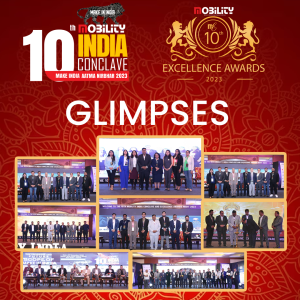Broadband India Forum (BIF) would like to congratulate the Hon’ble Finance Minister for effectively addressing most of the key economic challenges and priorities before the nation in the Union Budget 2018-19. For the telecom sector, the announcements have been unique and sports commendable actions. Decision to set up 500,000 Public WiFi Hotspots is a huge step in enhancing reach and availability of broadband and will help in realising vision of ‘Digital India’.
Government’s announcement to offer support for creating a test bed for 5G at IIT Madras, signalling the intent and commitment to harness the huge benefits from the Fifth Generation Technology that would provide ubiquitous ultra-broadband and connectivity. While announcing these developmental actions, Government has also kept a firm eye on the importance of Optic Fibre Cable for carrying data and declared sanction of Rs 10,000 crores for BharatNet project, the same amount as last year.
The sector would have benefited from a little more attention to towards reducing the enormous burden of duties & levies on telecom players. A key recommendation of the industry to reduce the GST on telecom service from the anomalous level of 18% to maximum 12%, in line with mobile phones was not addressed. Why this inconsistency? The latter cannot exist without the former service and the existing situation is anomalous and adversely impacting the end-user as well as the required rapid proliferation of broadband connectivity.
Further, hiking the import duties on finished mobile phones from 15% to 20% will adversely impact the industry. This action has apparently arisen from the expectation that this would boost Make in India. However, a simple examination of data on imports and exports and on value addition in Indian ‘manufacture’ clearly reveals that even the here-to-fore duty of 15% has been adversely impacting the cause of genuine Indian manufacture in the sense that true value addition remains very low at about 10% and only screwdriver technology of assembly of imported components flourishes.
In this process, the import bill for mobile phone components has risen from $1400 million in 2014 to $6800 million in 2016 to $9200 million in 2017 to expected $11,400 million in 2018, – a whopping 8-fold or 800% increase in 4 years. This, then, is surely not helping the cause of ‘Make in India’ and, on the contrary, is sharply inflating the import bill of the country. This has happened because the Government has missed adhering to its own Phased Manufacturing Plan (PMP) that had envisaged imposition of import duty on Printed Circuit Boards (PCBs) for mobile handsets which constitute 50% of the Bill of Materials (BOM). Not adhering to the PMP has now disadvantaged those local manufacturers who have made sizable investments to increase value addition, in the expectation that imported PCBs will attract duty from April 2018.
The Budget 2018 in toto is being considered as a balanced one as Government seeks to provide enhanced inclusive prosperity and foster growth. Looking at the positive outlook, the telecom sector expects more forward looking and positive policies from the NTP 2018.





